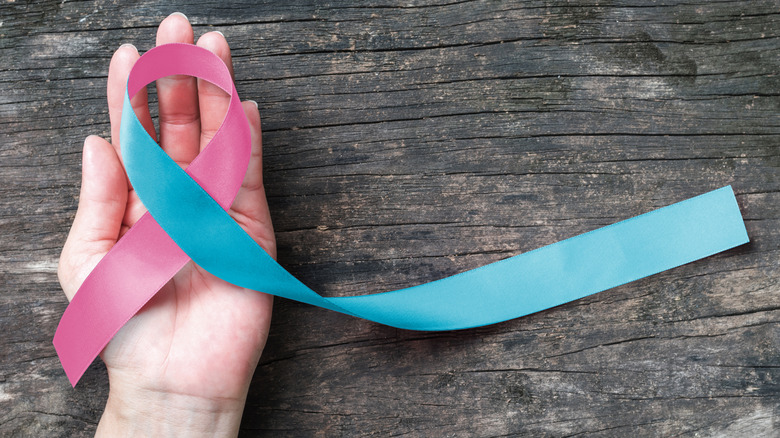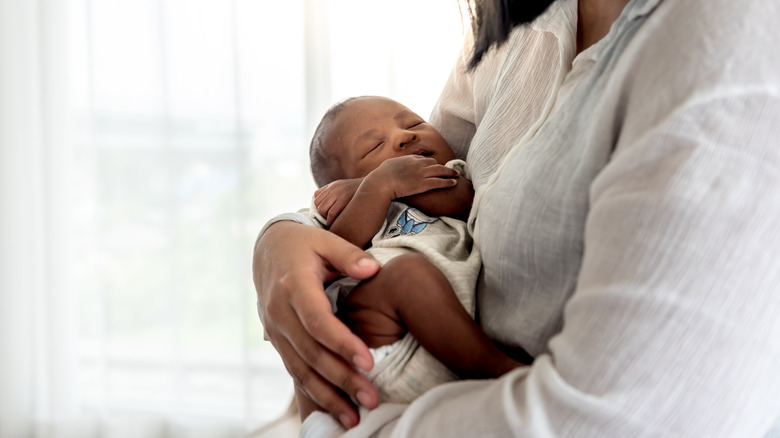New Research Reveals Possible Risk Factor For SIDS
Mayo Clinic defines sudden infant death syndrome or SIDS as the unexpected death of a baby during the first year of his or her life that usually occurs during sleeping. While certain risk factors have been pinpointed, new research revealed the cause. A study published in the June 2022 issue of eBioMedicine confirmed what the medical community has thought to be true all along: SIDS is due to low enzyme activity that helps regulate arousal during sleep. Babies who die from SIDS stop breathing in their sleep and cannot wake up.
The study was conducted by comparing samples of dried blood from babies who had died from SIDS to samples of dried blood from healthy babies. What they found was that an enzyme called butyrylcholinesterase was lower in babies who died from SIDS. As MedlinePlus explains, butyrylcholinesterase is intricately involved with breathing muscles, is responsible for breaking down general anesthesia, and is also engaged when a breathing tube has to be quickly used.
Finding a cure for SIDS
According to Biospace, new parents used to be told that taking certain precautions could possibly prevent SIDS. This included making sure babies weren't too warm, laying them on their backs, and removing toys and blankets out of the crib. Dr. Carmel Harrington said she heeded this advice when she gave birth to her son 29 years ago but still lost him to SIDS. The only explanation she was given was that it was just a tragedy. "But it was a tragedy that didn't sit well with my scientific brain," she said.
With this discovery of what exactly causes SIDS, researchers and doctors are now presented with the possibility of identifying babies who are at risk of SIDS before it's too late. As the attention of the medical community shifts from finding the cause to finding a solution, it's likely that a screening test will be developed in the coming years.


